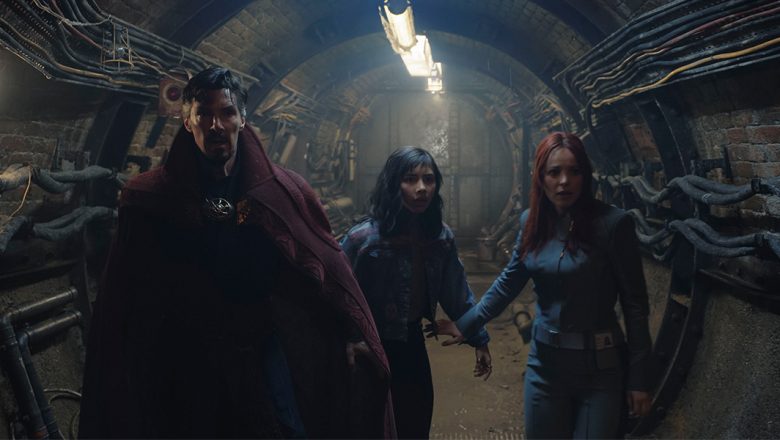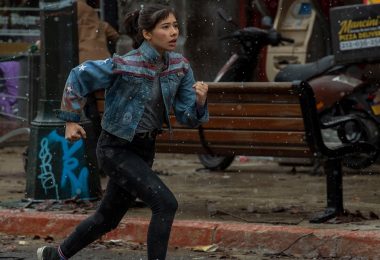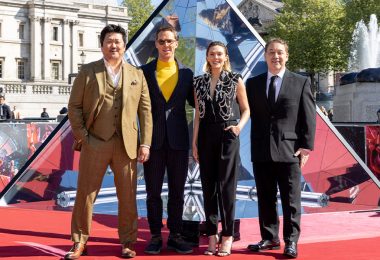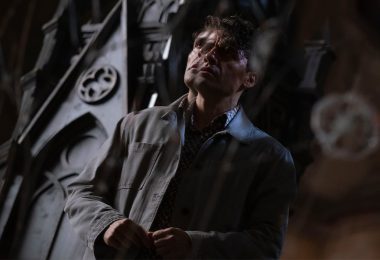By Zach Johnson
Before Marvel Studios’ Doctor Strange in the Multiverse of Madness opens in theaters this Friday, May 6, cast members Benedict Cumberbatch (Stephen Strange), Xochitl Gomez (America Chavez), Elizabeth Olsen (Wanda Maximoff aka Scarlett Witch), and Benedict Wong (Wong) joined director Sam Raimi, producer Kevin Feige, and writer Michael Waldron at a virtual press conference on Sunday to discuss the mind-bending supernatural action-adventure. Keep reading for five major highlights from the event…
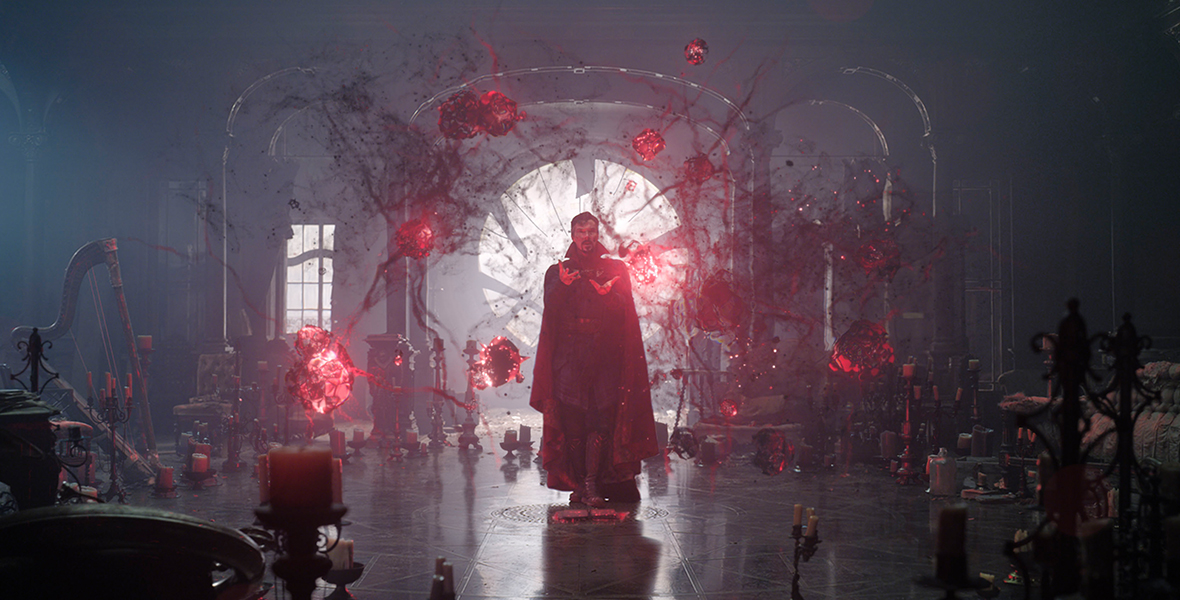
1. Doctor Strange is embarking on an existential journey.
“He’s quite a maverick and an outsider,” Cumberbatch said of his character. “He doesn’t immediately strike you as a leader, despite his prominence in the MCU [Marvel Cinematic Universe] at this moment. And that’s what makes him really interesting and conflicted as a hero.” This film will show Stephen examining “his flaws, his faults, his humanity, and his strengths,” the actor added, thereby “renewing and deepening our understanding of him.”
Stephen is “not rigid,” Cumberbatch noted. “He’s a very flexible character who is malleable to his experience,” he said. “He’s a very quick learner, as we know—not just intellectually, but emotionally now as well. He’s deepening his emotional language.”
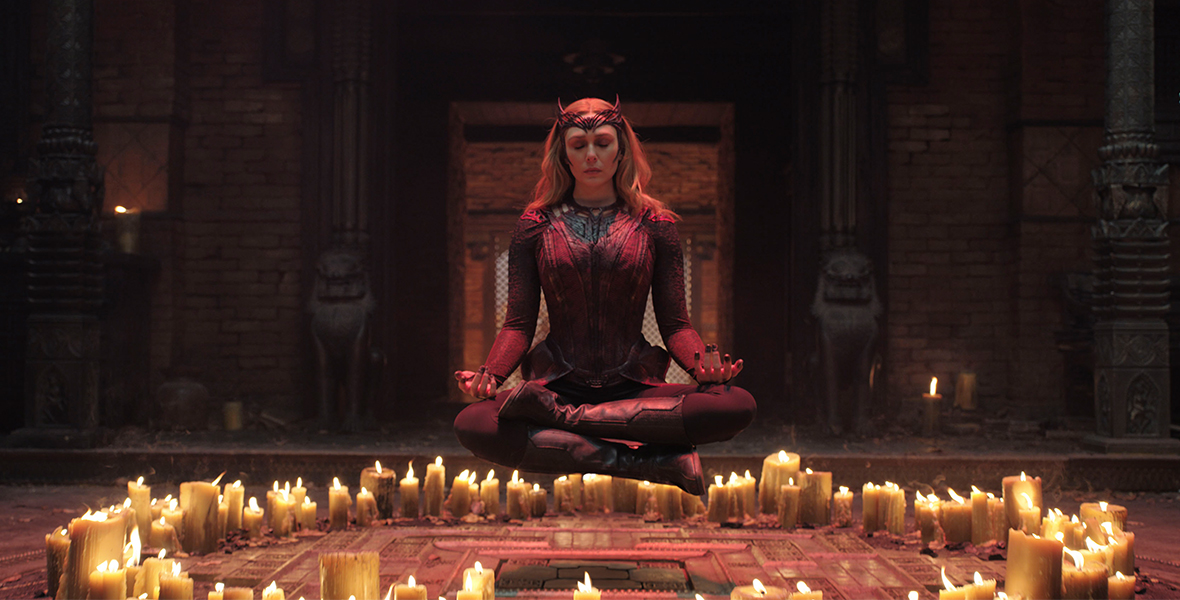
2. Wanda Maximoff is embracing her destiny—and her identity.
In Marvel Studios’ WandaVision (2021), Agatha Harkness (Kathryn Hahn) claimed it’s Wanda’s “destiny to destroy the world” as the Scarlet Witch. Now that Wanda has studied the Darkhold, aka the Book of the Damned, she’s become more in tune with her powers—which, lest you forgot, exceed those of the Sorcerer Supreme. “I feel like in the previous films before WandaVision, I took up a lane for storytelling that was more grounded in sincerity, love, loss, grief,” Olsen said. “With WandaVision, I got to become anything and everything and really grow her into a woman and lead her into accepting that she is this mythic woman. That is her destiny. I hope that in this film, people see that continuation of her acceptance of who she is and the journey she has taken to get to this moment. I feel like she has more clarity now than ever in this film.”
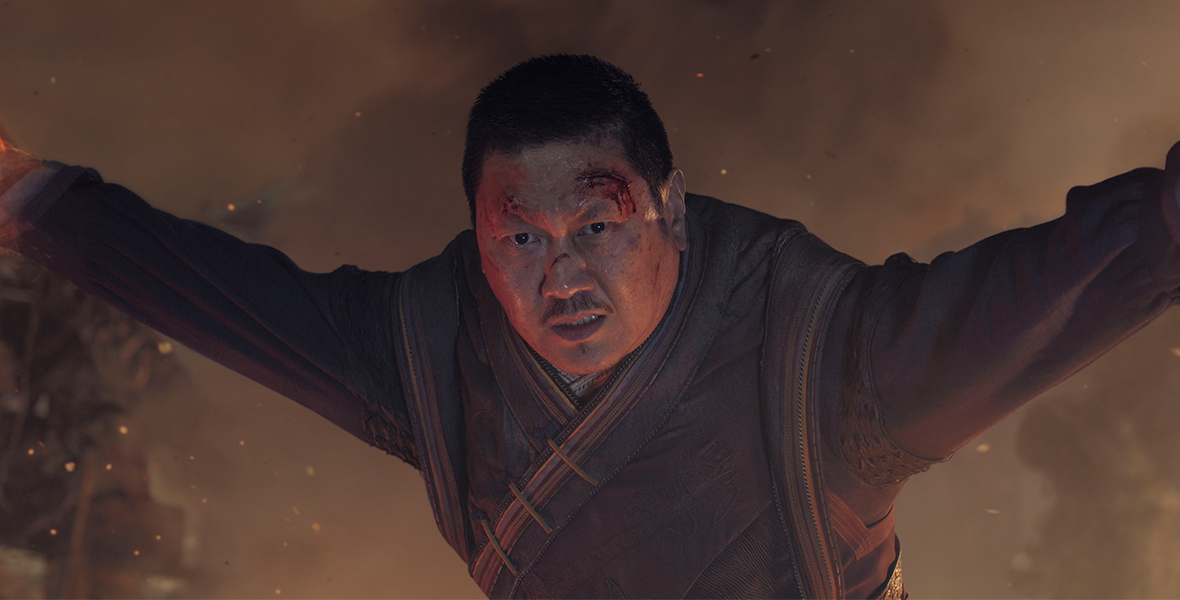
3. Wong is stepping into his role as a leader.
After Stephen was blipped out of existence, Wong became the primary protector of Earth against magical and mystical threats—a role he maintained even after Stephen came back. “You work on fries for a while, then you get to be area manager,” Wong joked. “When I first took the job six years ago, we moved away from the old source material and developed and crafted this no-nonsense, midfield general librarian who continued through four or five movies and is now the no-nonsense Sorcerer Supreme,” he added. “I love where we’re going with this and [seeing] the character progression.”
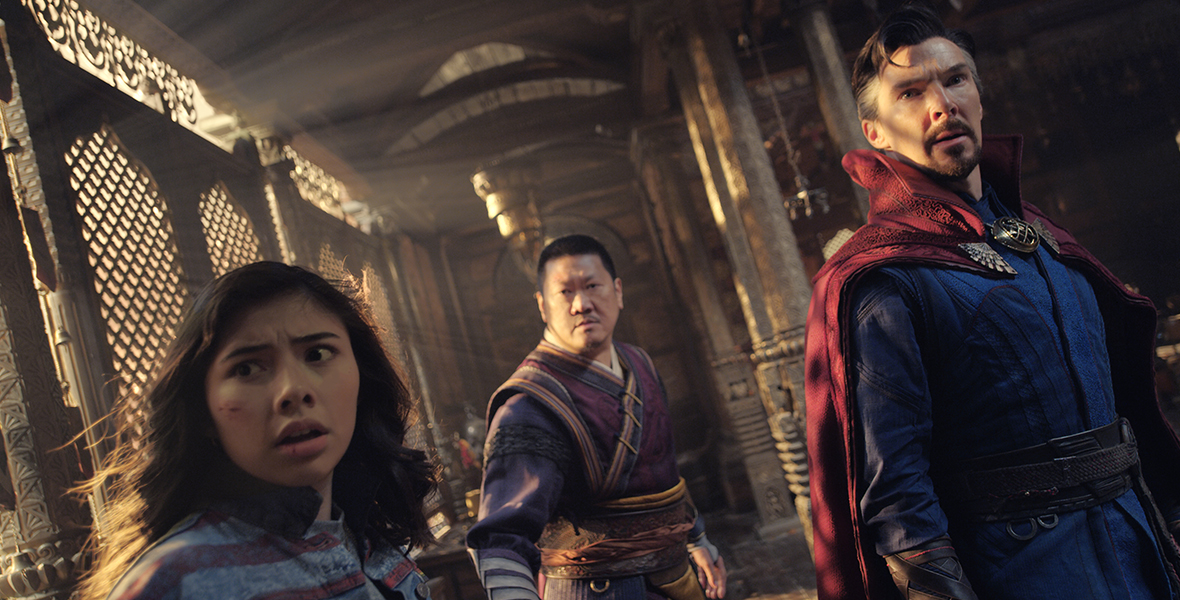
4. America Chavez brings a youthful spirit.
Gomez makes her MCU debut as a portal-punching teen, providing a foil to Stephen and Wong. “This is a very adult movie; it’s very heavy,” she said. “I wanted to make sure that America still had that youthfulness and that fake-it-till-you-make-it resilience.”
Feige addressed the importance of including America’s LGBTQIA+ background in the film, saying, “We always say that these films represent the world as it is—the world outside your window, as they used to say in publishing. That aspect of America’s character is from the comics, so we always want to adapt them as well and as truthfully as we can.”
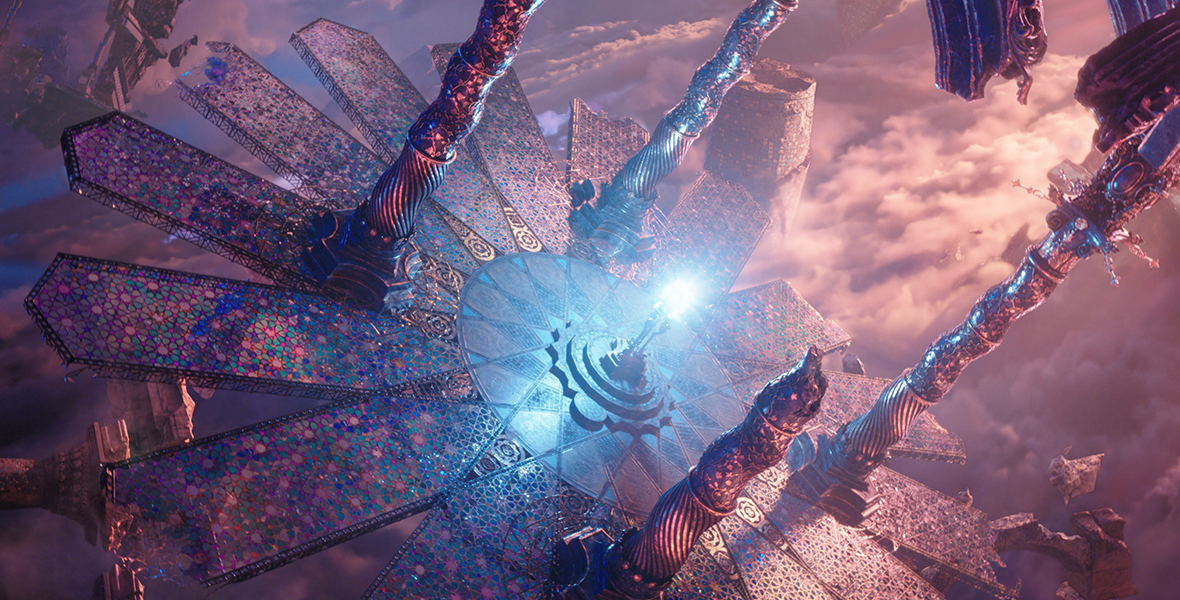
5. The concept of the Multiverse is getting cracked wide open.
The script was ever evolving, given that veteran MCU actors like Cumberbatch, Olsen, and Wong know their characters better than anyone. “They’ll recognize while playing a scene, ‘This is untrue. This feels like a manipulation. It could be more real,’” Raimi said. “We’d make changes in the moment, trying to riff on that very good idea. When you’ve got great team members, as a director, you want to pull the best [of] their ideas together and make something better than you could’ve made on your own.” Calling it a “very light, lively process,” Raimi added that they also needed to weave in storylines from other films and series. “We had meetings with the director, saying, ‘What does Doctor Strange know by the end of [Spider-Man: No Way Home]? Does he even remember the Multiverse?’” Waldron would make these changes in real-time, Raimi added. “It’s probably for a writer like improv is for an actor. These movies are reacting, making up, and changing things, [and so] you have to be in the moment, take it in, and go with it.”
Waldron added, “The first movie was very much about Stephen Strange entering this world of magic, learning about it, and beginning to master it. And then we had Stephen in several other movies: the Avengers films and Spider-Man: No Way Home. This is our first time really in a movie that is his.” Audiences will see Stephen “at the height of his powers,” Waldron added. “I think that’s really exciting. At same time, you’re encountering Wong, who has become Sorcerer Supreme. He’s at the height of his powers. And then you have Wanda, who is actualized in a whole new way. From the end of WandaVision, you could say she’s at the height of her powers… Lots of magic!”


